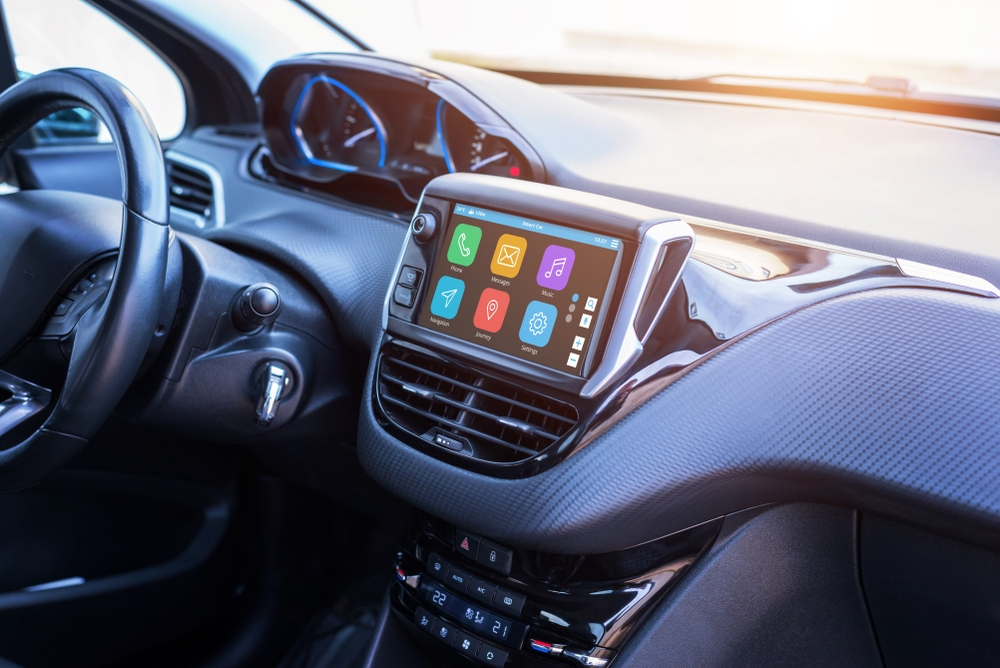
When you buy a new vehicle, you expect the latest technology, including touchscreen navigation, backup cameras, Bluetooth connectivity, and advanced safety features, to make driving easier and safer. But what happens when those systems don’t work the way they should?
If your car’s infotainment system, safety sensor, or automated driving feature repeatedly malfunctions, you may be wondering: Can this qualify as a lemon under Virginia law? The answer depends on the nature of the defect, how it affects your ability to use the car safely, and whether the manufacturer has had a reasonable chance to fix it.
Virginia’s Lemon Law: The Basics
Virginia’s lemon law, formally known as the Motor Vehicle Warranty Enforcement Act, protects consumers who buy or lease new vehicles that turn out to have serious defects. To qualify under the law, a defect must:
- Substantially impair the use, market value, or safety of the vehicle, and
- Remain unresolved after a reasonable number of repair attempts by the manufacturer or authorized dealer.
Typically, if the same issue has been repaired three or more times, or if the vehicle is out of service for 30 or more cumulative days during the warranty period, you may have a valid Lemon Law claim.
While most people think of “lemons” as cars with engine or transmission problems, modern technology has expanded the definition of a serious defect. Today’s vehicles rely on complex electronic systems that, when defective, can impact everything from visibility to crash prevention.
Similar Post: What Are Common Mistakes People Make That Weaken Their Lemon Law Cases?
Infotainment Systems: When Convenience Becomes a Liability
Infotainment systems are meant to enhance comfort and communication. But when they malfunction, they can become a major distraction, or worse, a safety hazard.
Some common infotainment issues include:
- Touchscreens that freeze, flicker, or shut down unexpectedly
- Audio systems that produce loud static or fail completely
- Navigation systems that misroute or crash mid-drive
- Bluetooth or Apple CarPlay/Android Auto systems that disconnect randomly
- Backup cameras that fail to display properly or lag significantly
A glitchy screen might sound like an inconvenience rather than a danger, but if the issue interferes with your ability to see behind you, hear alerts, or operate hands-free features safely, it may qualify as a substantial defect under Virginia’s lemon law.
Safety Features and Sensors: The Hidden Risks
Modern vehicles are packed with high-tech safety features designed to prevent collisions. However, when these systems fail, they can create confusion or even lead to accidents.
Malfunctioning safety technologies that could rise to the level of a “lemon defect” include:
- Blind spot detection that fails to alert you when another car is in your path
- Lane departure warnings that trigger incorrectly or not at all
- Automatic emergency braking (AEB) that engages without cause or fails to activate in emergencies
- Adaptive cruise control that accelerates or brakes unpredictably
- Airbag warning lights that stay illuminated or fail to deploy correctly
If these safety systems don’t work as intended and the manufacturer cannot fix them after multiple repair attempts, you may have the right to pursue a buyback or replacement under Virginia’s lemon law.
How Virginia Courts View Technology-Related Defects
Technology-related issues occupy a gray area in lemon law cases. The key question is whether the defect “substantially impairs” the car’s use, value, or safety.
For example:
- If your backup camera occasionally freezes but the vehicle is otherwise safe to drive, the manufacturer may argue it doesn’t qualify as a substantial defect.
- However, if your touchscreen constantly crashes, blocking access to the climate controls, reversing camera, or defrost system, that could be considered a safety impairment.
Virginia’s lemon law doesn’t require the car to be completely undrivable, only that the defect significantly diminishes its reliability or safety.
Similar Post: Bought a Used Car in Virginia? What the Lemon Law Does (and Doesn’t) Cover
Manufacturer Updates vs. True Repairs
A growing number of infotainment and safety issues are software-based rather than mechanical. Manufacturers often respond by issuing software updates or “patches.” While these updates can fix minor bugs, they don’t always solve deeper problems.
If your dealership repeatedly performs updates that don’t resolve the issue, or if the system continues to fail after each update, you should document every visit. Under Virginia law, each repair attempt counts, even if the manufacturer calls it a “reflash” or “update” instead of a repair.
Keeping detailed records of service visits, work orders, and correspondence with the dealer can make the difference between a denied claim and a successful lemon law case.
What to Do If You Suspect a Tech-Related Lemon
If your vehicle’s infotainment or safety system repeatedly fails, take the following steps:
- Report the issue immediately to your dealership and have them document each repair attempt.
- Keep all service records, including diagnostic reports and software update notes.
- Avoid “resetting” or repairing the system yourself, as this can complicate your case.
- Record how the defect impacts your safety or daily use; for example, if your backup camera fails when reversing in traffic.
- Consult a Virginia lemon law attorney before accepting any manufacturer offer or signing a settlement.
The manufacturer may try to downplay your issue or offer extended warranty coverage instead of a buyback. Before agreeing to anything, make sure you understand your legal options.
Similar Post: Is There a Time Limit to File a Lemon Law Claim in Virginia?
Why You Should Work with a Virginia Lemon Law Attorney
Technology-based lemon law cases can be difficult to prove without the right knowledge. An experienced attorney can:
- Evaluate whether your vehicle qualifies as a lemon under Virginia law
- Review your repair history and correspondence for compliance with the statute
- Negotiate directly with the manufacturer for a replacement or refund
- Ensure you recover reimbursement for taxes, registration fees, and other related costs
Attorney James B. Feinman has extensive experience representing Virginia consumers in complex lemon law and warranty cases. His firm works to hold manufacturers accountable when new vehicles fail to meet basic reliability and safety standards.
When the “Smart” Car Isn’t So Smart, You Still Have Rights
A vehicle that can’t perform its essential safety or technology functions isn’t just an inconvenience; it’s a potential danger. Whether it’s a defective backup camera, malfunctioning lane-assist system, or glitchy touchscreen that freezes your entire dashboard, you shouldn’t have to live with a lemon.
If you believe your car’s infotainment or safety system qualifies as a lemon under Virginia law, contact James B. Feinman, Attorney at Law today. Our team will review your case, explain your rights, and work to get you the compensation or replacement vehicle you deserve.
Call 434-216-0166 or contact us online for a free consultation. Don’t let a malfunctioning “smart” car put your safety or your money at risk. Our firm represents clients all throughout Virginia, including Arlington, Fairfax, Lynchburg, and Roanoke.
Disclaimer: This blog is intended for informational purposes only and does not establish an attorney-client relationship. It should not be considered as legal advice. For personalized legal assistance, please consult our team directly.
